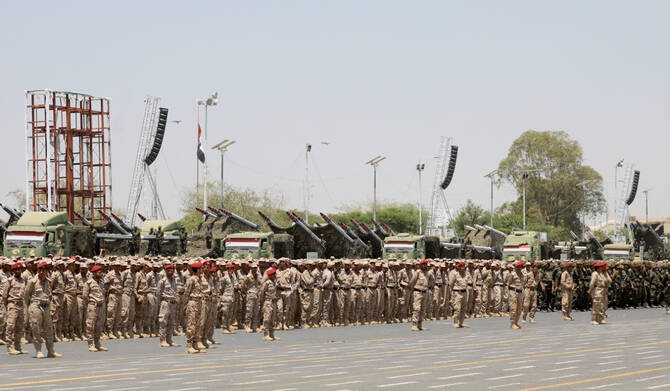Yemen’s Houthis Sanction U.S. Oil Firms Amid Regional Tensions
Los Angeles – Yemen’s Houthi-affiliated Humanitarian Operations Coordination Center (HOCC) on Tuesday announced sanctions on 13 U.S. oil companies, including ExxonMobil, Chevron, and ConocoPhillips, as well as nine executives and two vessels. The move comes amid ongoing tensions in the Red Sea and Gulf of Aden.
The HOCC, a Sanaa-based body set up to coordinate between Houthi forces and commercial shipping operators, said the sanctions are intended to encourage responsible corporate conduct and promote positive behavioral change rather than disrupt global oil markets.
Analysts noted that the sanctions appear largely symbolic. “This looks like a media-focused move to signal accountability and reassure domestic audiences, while leaving room for negotiation and cooperation with international partners,” said Mohammed Albasha, founder of Risk Advisory Basha Report.
The announcement follows a truce agreement brokered with the Trump administration, under which the Houthis agreed to limit attacks on U.S.-linked vessels. Observers said the impact on global energy supply is likely to be limited. The U.S. Energy Information Administration reported that U.S. imports of crude and condensate from Gulf countries represent only a small fraction of total consumption, with domestic production and Canadian imports accounting for the majority.
The Houthis have carried out occasional attacks on vessels in the Red Sea and Gulf of Aden since 2023, targeting ships they link to regional conflicts. However, analysts say these operations have had minimal impact on vital shipping lanes, including the Strait of Hormuz.
HOCC emphasized that the sanctions are meant to influence corporate behavior positively. “The ultimate goal is not punishment but encouraging compliance and constructive engagement,” the statement said.
Energy experts highlighted that measured actions like these can create dialogue opportunities between regional actors and multinational firms. “By clearly communicating their position, the Houthis are opening a channel for negotiation and promoting safer maritime operations,” said Albasha.
The sanctions also attracted attention because of the companies involved and the broader context of regional security. Observers noted that the Houthis’ move aligns with emerging trends in conflict resolution, signaling a preference for diplomacy and behavioral reform over punitive measures.
Overall, the latest development reflects ongoing regional dynamics and demonstrates the Houthis’ willingness to engage with international stakeholders through targeted measures, while minimizing disruption to the global oil market.



